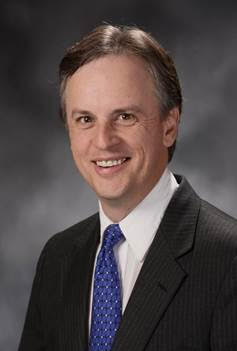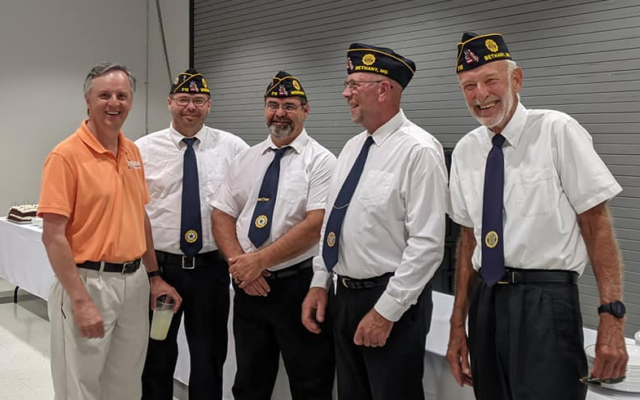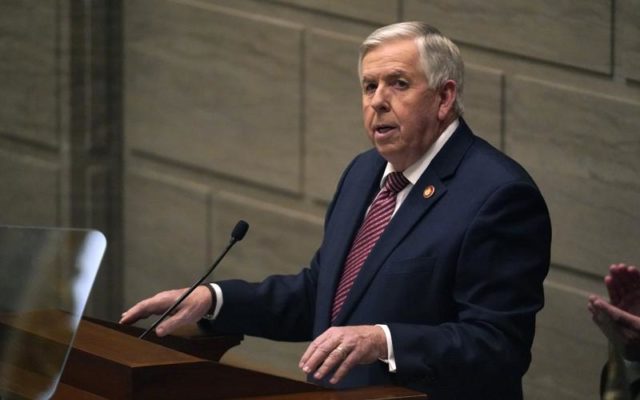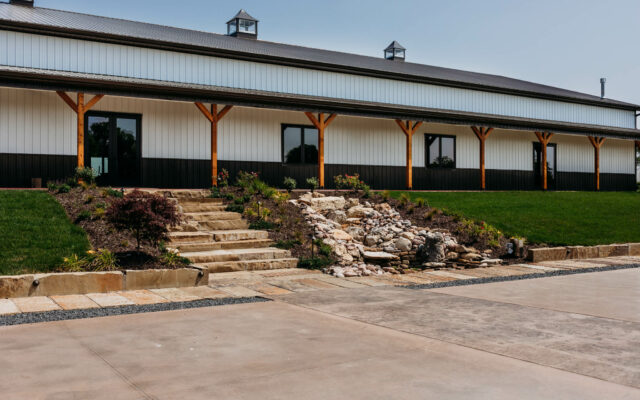THE EGGLESTON REPORT – TWO BIG VETOES

Governor Parson vetoed two bills, a move that has quite a few people perplexed or upset. The first veto was of HB2090. This bill would have (1) given income tax refunds in 2022 to many Missourians, (2) relieved wedding venue businesses of over-zealous regulations from the Dept. of Revenue, and (3) disallowed any Covid-vaccine mandates for state government workers. In his statement, the governor said he did not like that the tax refunds would only go to the middle class. Under HB2090, the refunds would have been given to those who paid income tax and made less than $150,000/year. Those who make so little that they don’t pay income tax and those who make more than $150,000 would not have received the rebate, which bothered the governor.
Gov. Parson said he would prefer a bigger, permanent tax cut that would reduce the top rate, eliminate tax brackets, and increase the standard deduction. These items are the components of my HB1139, so I am in support of those ideas and would be happy to work with the governor to get them passed in a special session. But he could have signed HB2090 to provide a rebate this year, and still held a special session to work on tax reform for future years. He didn’t need to veto one to get the other.
The governor also vetoed HB1720, which would have helped farmers and ranchers by creating new programs for the biodiesel and ethanol markets, and extended some existing agricultural tax credit programs by two years. Parson said he vetoed this bill because he wanted the programs extended six years, not two. He said he will call for a special session to get the six years. Again, he could have signed the bill to get the two year extension and then worked to extend them further in a future session, but chose not to.
There are some senators who like tax cuts, but don’t like ag tax credits. There is speculation that Gov. Parson will ask the two bills be tied together to pressure those senators into supporting. If that is true and the gambit works, he will get everything he wants. But if it falls apart, then citizens will get no tax cuts and the ag programs will expire hurting farmers and ranchers. No date for a special session to address these issues has been set yet. It will probably occur around the September veto session when lawmakers will be in Jefferson City anyway.
As always, if you have questions email me at [email protected]. Until next time, health, happiness and prosperity to you and your family.
PICTURES FROM THE DISTRICT

Sharing a good moment with our veterans from the Bethany American Legion
FROM THE CAPITOL NEWS DESK
State Operating Budget Signed into Law
The state operating budget approved by the General Assembly during the 2022 legislative session was signed into law this week. With Gov. Mike Parson’s signature, the bills that make up the state spending plan officially took effect on July 1, which marks the beginning of the new fiscal year.
The plan approved by lawmakers and signed by the governor allocates record levels of funding to the state’s system of education, as well as to vital infrastructure projects such as roads, bridges, ports, water systems, and broadband. The budget plan also provides funding for programs that assist the state’s most vulnerable citizens, increases support for law enforcement and public safety, and invests in the state’s workforce.
Gov. Parson said, “We want to thank all of the legislators who helped pass this historic budget that cements our state’s strong financial position and provides tremendous opportunities for Missourians, both today and tomorrow. Informed by the needs of Missourians all across the state, we have once again passed a balanced and conservative budget that benefits every Missourian.”
Parson added, “With record revenues, strong economic performance, and significant sums of Missourians’ federal tax dollars returning to our state, this session we met the moment and approved strategic investments that will serve generations of Missourians.”
While Parson authorized the bulk of the funding allocated by the House and Senate, he also issued 32 line-item vetoes for various spending items. In total, the governor vetoed nearly $644 million in spending. Included in that total is $500 million in funding for a one-time economic recovery tax credit for Missouri taxpayers. The complete list of budget vetoes can be viewed at the following link: https://oa.mo.gov/budget-planning/budget-information/2023-budget-information/appropriation-bills-fiscal-year-2023
The Fiscal Year 2023 state operating budget includes funding for:
Critical Infrastructure Projects
- $608 million for investments in drinking water, wastewater, and stormwater infrastructure;
- $356.5 million for broadband expansion projects;
- $160 million for efficient and innovative transportation projects across the state;
- $100 million for rural route repair projects;
- $75 million for the Transportation Cost-Share program;
- $8.5 million for rural health telehealth access; and
- $12.9 million for public transit.
Education and Workforce Development
- $3.6 billion to again fully fund the K-12 Foundation Formula;
- $460.1 million for capital improvement projects at public higher education institutions;
- $429.5 million to strengthen the state’s child care and early childhood education network;
- $328.4 million to fully fund school transportation needs;
- $75 million to develop new shovel-ready industrial sites;
- $51.6 million core funding increase for state four-year higher education institutions;
- $31.5 million for the third year of MoExcels projects and employer-driven workforce training investments;
- $30 million for Missouri One Start to assist employers, train and upskill workers, and upgrade training infrastructure;
- $21.8 million to partner with school districts to increase baseline K-12 educator pay to $38,000 per year;
- $20 million to upgrade and improve Missouri’s 57 area career centers;
- $16 million for the Missouri Technology Corporation to promote entrepreneurship and innovation;
- $10 million for higher education agricultural innovation in education workforce programs;
- $10 million for MoExcels program projects at private non-profit institutions;
- $9.1 million for Missouri One Start;
- $7 million for dual credit and enrollment scholarships;
- $6 million for A+ schools program; and
- $500,000 for Jobs for America’s Graduates.
Support for Vulnerable Missourians and Missouri Communities
- $955 million for provider rate standardization and to improve MO HealthNet program integrity and access to care for vulnerable Missourians;
- $148.7 million for community provider capital improvements and to expand services to underserved populations;
- $104.7 million for a new public safety crime lab that will assist local law enforcement agencies;
- $100 million for Community Development and Revitalization grants;
- $94.9 million to invest in new small businesses;
- $78.6 million for the construction of a new multidisciplinary state health lab;
- $50 million for developmental disability and behavioral health services;
- $30 million for local tourism asset development;
- $30 million for a first responders grant program;
- $30.5 million to implement the 988 Crisis Hotline;
- $29.2 million for Area Agencies on Aging;
- $24 million for services for victims of crime;
- $12.8 million for substance use response grants for local governments;
- $5.8 million for Missouri Autism Centers;
- $4.4 million for 911 dispatch centers;
- $2.5 million for the Prescription Drug Monitoring Program to help combat the opioid crisis;
- $1 million for law enforcement academy scholarships;
- $550,000 for crisis counseling services for law enforcement officers; and
- $420,000 for Youth Behavioral Health Liaisons.
Detailed information on the Fiscal Year 2023 state operating budget can be found on the House website at the following link: https://house.mo.gov/budget.aspx
Several Pieces of Priority Legislation Signed into Law
As lawmakers prepared for the holiday weekend, they saw several of their priority bills signed into law. Missouri Gov. Mike Parson signed a total of eight bills into law on Friday, July 1.
SB 672 will expand and extend Missouri’s innovative Fast Track Workforce Incentive Grant program, which addresses workforce needs by encouraging adults to pursue a certificate, degree, or industry-recognized credential in a job field designated as high need. The financial aid program fully covers tuition and fees for degrees, credentials and certificates in high-demand fields when combined with other federal and state financial aid. Individuals who are 25 or older or those who have not been enrolled in any school within the last two years and who meet certain income requirements are eligible for Fast Track. The bill extends the program until August 28, 2029 and expands Fast Track to allow it to be used toward apprenticeship programs.
Gov. Parson said, “We are proud that our Fast Track program has been extended to continue providing adults with opportunities to learn new skills and develop their career potential. This program is heavily used by women, first-generation college students, and individuals seeking health care related careers, and we are grateful to the General Assembly for recognizing the importance of maintaining this program.”
The bill also creates the Joint Committee on Rural Economic Development and creates Targeted Industrial Manufacturing Enhancement Zones to help incentivize economic development in landlocked communities.
HB 2400 renews Missouri’s research and development tax credit program to help businesses develop new products and jobs. The tax credit will help businesses finance the research and development of new products and services, or improve existing ones. The legislation sets aside $10 million for research and development tax credits and dedicates $5 million to small businesses, minority-owned businesses and women-owned businesses. It provides a tax credit for 15 percent of qualified research expenses and up to 20 percent if the research is done through a Missouri university. The bill also allows taxpayers to remove state and local taxes they have paid from the calculation of their federal tax liability, aligning Missouri tax law with the changes that were made in the federal Tax Cuts and Jobs Act; makes changes to the Missouri One Start Program to help further attract and retain businesses in Missouri; and expands opportunities for retirement and benefit plan options through registered professional employer organizations.
SB 681 & 662 will help address Department of Elementary and Secondary Education data showing more than half of Missouri students don’t reach reading proficiency by eighth grade. The bill creates a reading intervention program to ensure students do not fall behind on reading skills in elementary school. The legislation also addresses the substitute teacher shortage that is causing major problems for schools around the state. The bill is meant to create opportunities to increase the number of substitutes that are available to schools. Another provision in the bill will address the needs of the many exceptional students who currently do not have access to gifted programs in their schools. The bill also helps to protect young people from toxic lead by reducing the amount of lead allowed in school drinking water.
Other provisions in the bill will allow schools to apply a waiver of certain statutory requirements for the purpose of improving student post-secondary readiness, increasing teacher pay, or improving teacher recruitment and professional development; modify the Career Ladder program by increasing state funding and enabling newer teachers to qualify in an effort to help with teacher retention efforts; require schools to post suicide lifeline information on student ID cards for students in grades seven through twelve; and create the Imaginary Library Program, which provides families with books to children up to age five.
SBs 775, 751, & 640 will provide greater protections to children who have been victimized by sex trafficking. This bill puts into state law the process by which a child located by law enforcement and who is suspected to have been a victim of sex trafficking is to receive help from the Division of Social Services, the Juvenile Court system, child advocacy centers and law enforcement. Additionally, the bill modifies the Sexual Assault Survivors Bill of Rights, which would make it inadmissible for a victim’s previous sexual history to be used during a trial, establish procedures for medical care, and protect survivors’ identifiable information in public records. It would also ensure a sexual assault victim has the right to consult with a representative of a rape crisis center, be offered a shower and fresh set of clothing, have an interpreter help communicate, as well as provide other protections. The bill also protects the identity of victims of sexual assault and domestic violence in court proceedings and records
SB 683 creates a Correctional Center Nursery Program with the goal of providing better outcomes for mothers in prison and their children. The program is based on existing programs in other states that have helped to reduce recidivism among mothers and resulted in cost savings for the states. The bill also exempts certain day camps and summer camps for school age children from child care licensing requirements; and expands child care licensing capacity for licensed family child care homes.
HB 2485 enacts several provisions related to environmental regulation. The bill adds several definitions to provisions of law relating to solid waste management, including definitions for “advanced recycling” and “advanced recycling facility”. The bill also specifies that processed recycled asphalt shingles, as defined in the act, may be used for fill, reclamation, and other beneficial purposes without any permits relating to solid waste management or any permits relating to the Missouri Clean Water Law if the shingles are inspected for toxic and hazardous substances, provided that such shingles shall not be used for fill, reclamation, or other beneficial purposes within 500 feet of any lake, river, sink hole, perennial stream, or ephemeral stream, and shall not be used for such purposes below surface level and closer than 50 feet above the water table. Additionally, the bill states the Hazardous Waste Management Commission will not promulgate rules that are stricter than, apply prior to, or apply mandatory obligations outside of the requirements of regulations promulgated pursuant to the Resource Conservation and Recovery Act.
Governor Vetoes Four Bills, Announces Plans for Special Session
During the same week the governor signed the bulk of the General Assembly’s work into law, he also announced vetoes for four bills that received legislative approval during the 2022 session. Two of the bills vetoed by Gov. Parson are legislative priorities that would have provided tax relief for Missouri taxpayers and increased support for Missouri agriculture. In vetoing the bills, Parson said he plans to call the legislature back for a special session to pass revised versions of both plans.
As he announced his vetoes, Parson said, “We are holding conversations with legislative leaders to plan a special session that will address extensions for key agriculture tax credits and the largest income tax cut in our state’s history, and we will provide permanent tax relief for all Missourians.”
Parson vetoed HB 2090, which would have provided substantive tax relief in the form of a one-time economic recovery tax credit for Missouri residents who paid personal income tax in the state for 2021. The bill authorized one-time tax rebates up to $500 for individuals making less than $150,000 per year.
Parson said he wants the legislature to return for a special session to pass legislation that will “cut taxes and return hard-earned dollars back to Missourians’ paychecks.” He said his proposal would provide permanent tax relief that provides yearly savings to Missourians, as opposed to a one-time refund.
“I have always advocated for reducing Missourians’ tax burden and support the spirit of this legislation, however, the reality is, we can do better for all Missouri taxpayers than HB2090, and I want to focus on a comprehensive and permanent tax reform package,” Parson said.
He added, “Now is the time to take additional steps to help alleviate the strain on Missouri families. Permanent tax cuts that provide real relief to families, senior citizens, the working class, and small businesses every year is a better answer to the inflationary pressures we face, and we look forward to getting it done.”
Parson’s proposed tax plan includes reducing the individual income tax rate, increasing deductions and allowances for taxpayers, and further simplifying the tax code.
Gov. Parson also vetoed HB 1720, which was approved by the General Assembly to renew key programs and create new ones to support and promote agriculture in the state. The bill would have extended several programs for another two years.
Parson said, “These two-year extensions are problematic and reduce the benefit to Missouri farmers and business owners. Applicants often need a minimum of 24 months in order to secure the equity and private investment needed for projects. When a program is only guaranteed for a partial period of a project’s development, businesses are less likely to invest.”
He added, “This year the General Assembly authorized longer sunsets for a number of other tax credit programs, and as agriculture is Missouri’s top economic driver, it’s only right that we offer Missouri farm families – the foundation of our economy – with the same opportunities as others. We must extend these key agriculture tax credits for a minimum of six years.”
Parson’s special session plan for agriculture tax credits and related priorities includes:
- Extending the sunset on agriculture tax credits included in HB 1720 for a minimum of six years rather than two;
- Exempting certain agricultural equipment from state and local sales tax; and
- Modifying the Family Farms Act to increase the number of small farmers that qualify for the program, and increasing the amount of loans available to the farmer.
The House sponsor and the Senate handler of HB 1720 said, “We support the Governor’s call to fully extend these agricultural tax credits that are critical for our state’s agriculture industry, ensuring it maintains pace with competing industries and the needs of Missourians.”
Both permanent tax relief and agriculture tax credits subjects will be addressed during a special session later this year. Governor Parson is currently working with legislative leaders to identify a date for the special session call.
Parson also vetoed HB 1667, which would have legalized Kratom as a recreational drug, and SB 724, which would have modified provisions related to county financial statements.



